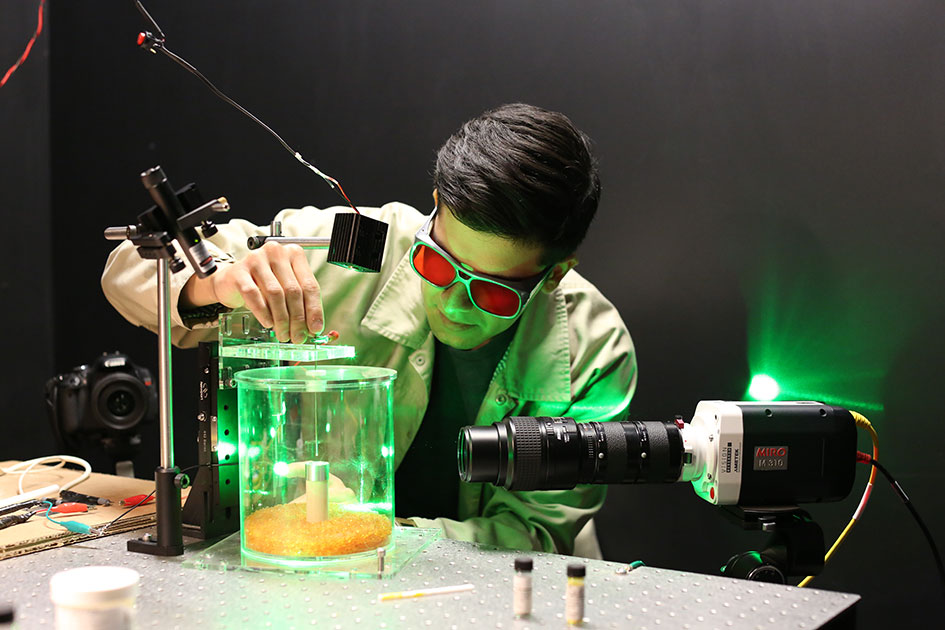Fighting Structural Racism in Science
Moore Foundation supports Reed initiative to boost diversity in STEM.
The Gordon and Betty Moore Foundation has signed on to a new initiative at Reed College aimed at boosting the number of underrepresented students majoring in science. The three-year grant, which totals $344,588, further strengthens Reed’s commitment to students from historically marginalized groups who major in STEM (science, technology, engineering, and math) by expanding student research opportunities and emphasizing a sense of inclusion.
A key element of the initiative is the creation of more opportunities for underrepresented students to pursue summer research projects in the sciences. Summer research confers far-reaching benefits for undergrads, strengthening their skills, reinforcing their identities as scientists, and contributing to future academic success. Reed currently sponsors summer research projects for approximately 125 students; the Moore grant will provide an additional 30 summer research awards for underrepresented students over the next three years.
“The physical sciences are in desperate need of the talents, energy, and insights of the next generation of underrepresented students,” said Reed President Audrey Bilger. “I am delighted that this vital project has earned the support of the Gordon and Betty Moore Foundation.”
The initiative was designed in response to the 2019 TEAM-UP report of the American Institute of Physics, titled The Time is Now: Systemic Change to Increase African Americans with Bachelors Degrees in Physics and Astronomy. The project, which was co-chaired by Reed’s own A.A. Knowlton Professor of Physics and Dean for Institutional Diversity, Mary James, identified a striking lack of diversity in the field of physics and astronomy, particularly among African Americans. While African Americans make up 14% of the U.S. population, for example, they earned less than 4% of bachelors degrees in physics. The project also identified five key factors that contributed to the success of African American students in physics, and to underrepresented students in STEM fields generally:
- A sense of belonging
- Identifying themselves (and being perceived by others) as future physicists
- Academic support that builds on strengths as opposed to focusing on weaknesses
- Personal support that acknowledges financial challenges
- Strong departmental backing that goes beyond the “lone champion.”
Over the past decade, Reed has taken many steps to counteract structural racism, such as the appointment of a Vice President and Dean for Institutional Diversity, and a focus on inclusive pedagogy in the Center for Teaching and Learning. This initiative builds on success by providing individual grants to underrepresented students who show promise in STEM fields and who want to pursue summer research. The initiative will also help the physics and chemistry departments at Reed assess their climate for underrepresented students and identify ways to make improvements.
Reed is well-positioned to push for a more inclusive approach to science. Reed is currently ranked No. 1 in the nation in the percentage of STEM majors who go on to earn PhDs in STEM fields.
The Gordon and Betty Moore Foundation fosters path-breaking scientific discovery, environmental conservation, patient care improvements and preservation of the special character of the Bay Area. Visit Moore.org and follow @MooreFound.
Tags: Academics, Diversity/Equity/Inclusion, Financial Aid, Giving Back to Reed, Institutional, Research
